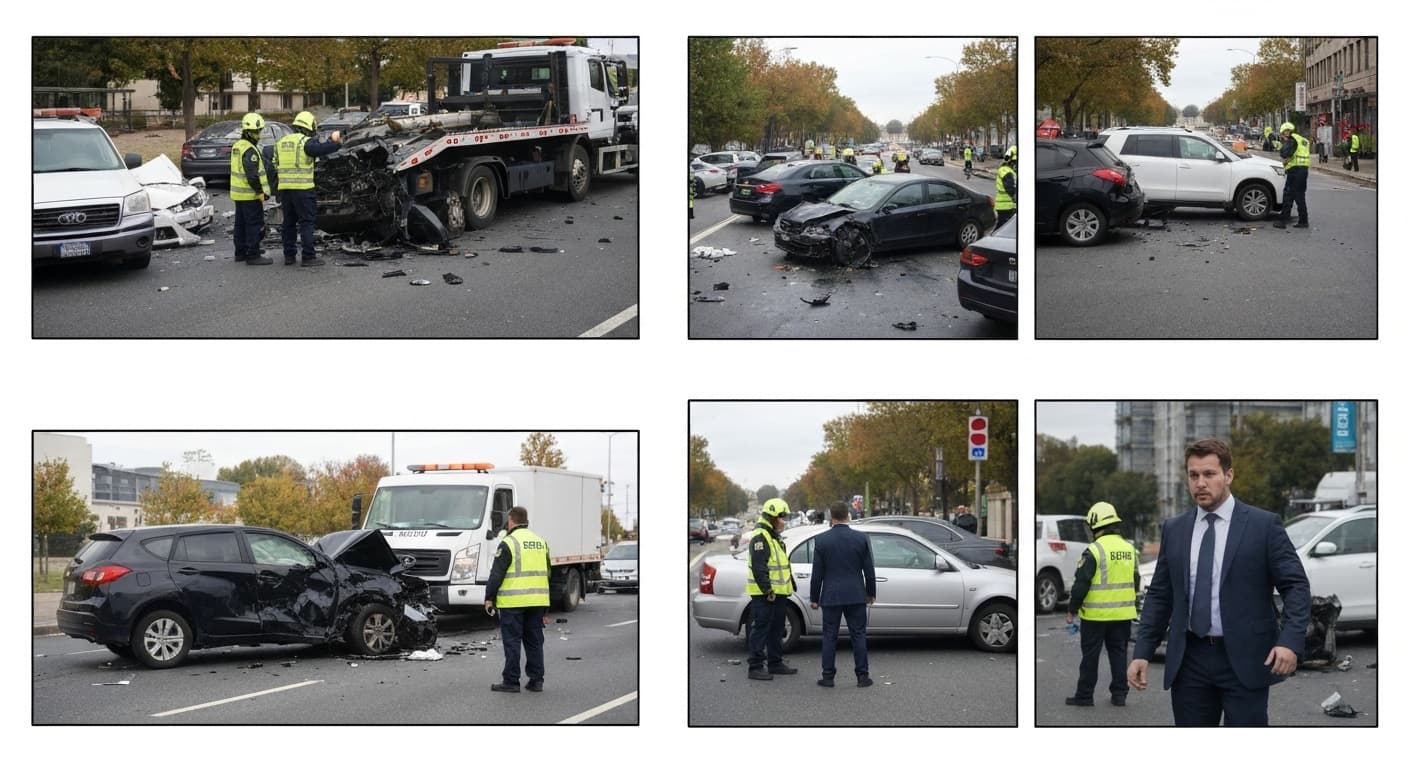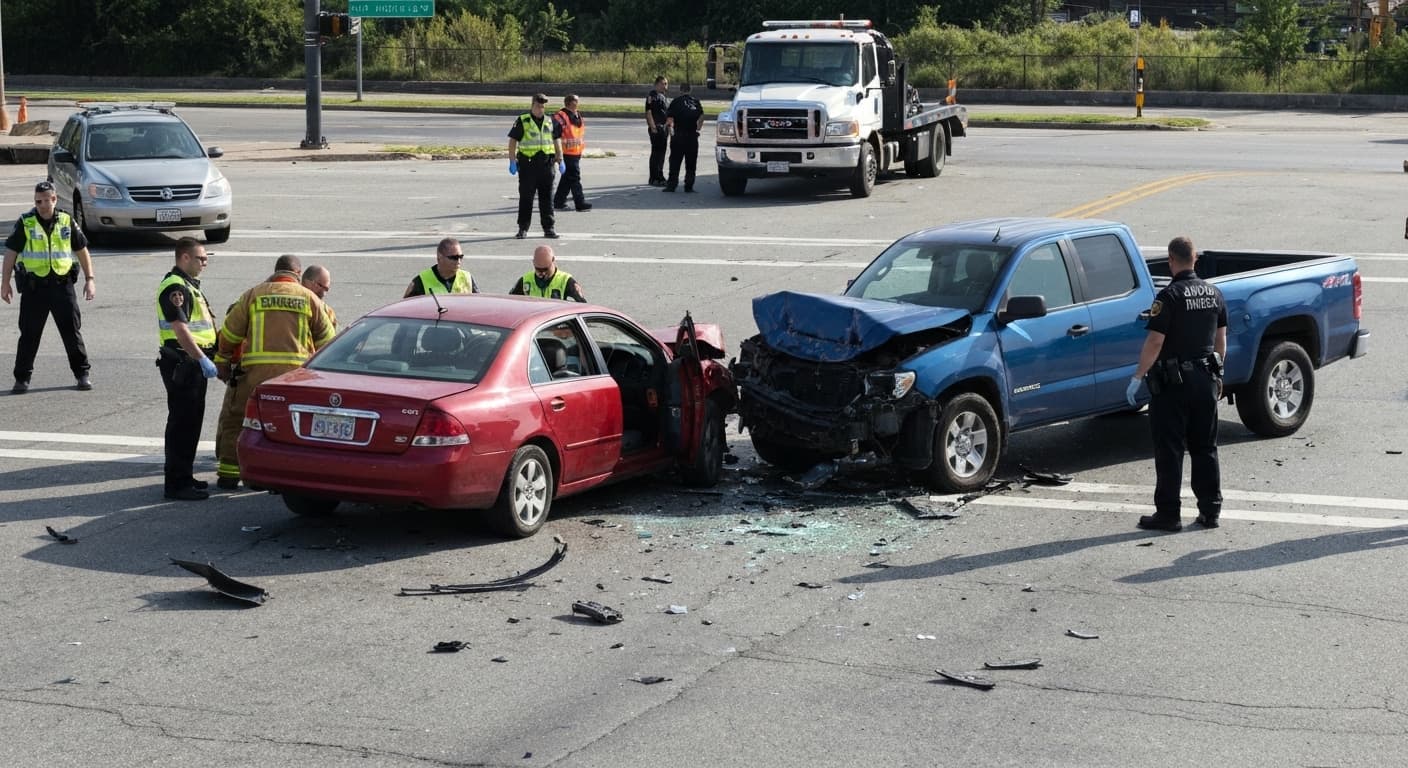
7 Reasons Why Car Accident Cases Go to Court
Learn about 7 reasons why car accident cases go to court and how it affects your legal rights after a car accident. Get expert advice from experienced car accident attorneys.
# 7 Reasons Why Car Accident Cases Go to Court
While many car accident cases are resolved through settlement negotiations, certain circumstances make court litigation necessary to achieve fair compensation and justice. Understanding the 7 most common reasons why accident cases proceed to court can help you recognize when litigation may be unavoidable and prepare accordingly. Though going to court can be time-consuming and stressful, it often provides the best opportunity for maximum compensation and accountability. An experienced car accident attorney can help you evaluate whether court proceedings are necessary for your specific case.
1. Unreasonable Settlement Offers from Insurance Companies
Insurance companies often make low settlement offers that dont adequately compensate victims for their losses, forcing court intervention to achieve fair compensation.
Common Underestimation Tactics:
- Failure to account for all medical expenses including future treatments
- Inadequate compensation for lost income and diminished earning capacity
- Underestimation of pain and suffering damages using arbitrary formulas
- Ignoring property damage restoration and replacement costs
- Exclusion of emotional distress and mental health impact compensation
Settlement Negotiation Challenges:
- Insurance company resistance to increasing initial offer amounts
- Lack of transparency in claim evaluation and reserve setting procedures
- Pressure tactics encouraging quick acceptance of inadequate offers
- Biased fault assessment leading to reduced compensation expectations
- Failure to consider long-term rehabilitation and support needs
2. Disputed Liability and Fault Determination
When parties cannot agree on who was at fault for the accident, court proceedings become necessary to establish legal responsibility and accountability.
Liability Dispute Categories:
- Conflicting witness accounts of accident sequence and circumstances
- Differing interpretations of traffic laws and right-of-way rules
- Disagreements over contributing factors and negligence percentages
- Insurance company denial of coverage based on policy exclusions
- Multiple vehicle involvement complicating fault apportionment
Evidence Presentation Requirements:
- Accident reconstruction expert testimony and analysis
- Police report interpretation and officer testimony presentation
- Witness statement credibility assessment and corroboration
- Physical evidence preservation and expert examination
- Traffic law interpretation by qualified legal professionals
3. Failure to Respond to Settlement Demands
Insurance companies that ignore or inadequately respond to reasonable settlement demands leave victims with no choice but to pursue court action.
Response Deficiency Patterns:
- Complete lack of communication despite repeated contact attempts
- Delayed responses causing unnecessary case progression delays
- Inadequate counter-offer amounts that dont address claim value
- Bad faith claim handling practices and unreasonable delays
- Failure to provide requested documentation and claim details
Resolution Necessity Factors:
- Statute of limitations expiration approaching without resolution
- Medical treatment continuation requiring financial support
- Lost income accumulation continuing without compensation
- Property damage repair delays impacting daily life
- Interest and penalty accumulation in unresolved claims
4. Complex Medical Injury Cases
Severe or complex injuries often require court presentation to properly value damages and ensure adequate compensation for long-term needs.
Complex Injury Categories:
- Traumatic brain injuries requiring extensive rehabilitation
- Spinal cord injuries resulting in permanent disability
- Multiple fracture cases with long-term mobility limitations
- Chronic pain conditions requiring ongoing treatment
- Psychological trauma requiring extended therapy
Compensation Complexity Factors:
- Future medical expense projections and lifetime cost calculations
- Earning capacity loss assessment and vocational rehabilitation needs
- Home modification requirements for disability accommodation
- Assistive device needs and ongoing support service requirements
- Quality of life impairment quantification challenges
5. Policy Limits and Underinsured Motorist Claims
When accident damages exceed available insurance coverage limits, court proceedings become necessary to access additional compensation sources.
Coverage Limitation Scenarios:
- Bodily injury limits insufficient for extensive medical expenses
- Property damage coverage inadequate for vehicle replacement costs
- Underinsured motorist coverage activation and utilization requirements
- Multiple policy coordination complications and disputes
- Umbrella policy coverage interpretation disagreements
Additional Coverage Pursuit:
- Personal umbrella liability policy consideration and activation
- Commercial vehicle insurance policy involvement assessment
- Government entity liability claims for public vehicle accidents
- Product liability claims for defective vehicle component failures
- Vicarious liability claims against employers or parents
6. Bad Faith Insurance Practices
Insurance companies that engage in unfair claims practices and bad faith tactics often force victims to seek court intervention for accountability.
Bad Faith Practice Indicators:
- Unreasonable claim denials lacking factual basis or documentation
- Excessive delays in claim processing without valid justification
- Failure to thoroughly investigate claims before denial decisions
- Inadequate settlement offers not supported by claim evaluation
- Discriminatory claim handling based on claimant characteristics
Legal Recourse Options:
- Breach of contract claims for coverage denial violations
- Bad faith insurance practice state law violations
- Extra-contractual claims for unfair claim handling penalties
- Punitive damages consideration for egregious conduct
- Attorney fee recovery provisions under state insurance guarantee funds
7. Need for Court-Ordered Discovery
Some cases require formal discovery processes only available through court proceedings to obtain necessary evidence and testimony.
Discovery Necessity Factors:
- Insurance company document production resistance or refusal
- Witness testimony unavailability through informal methods
- Expert opinion requirements for complex technical issues
- Depositions needed for evidence preservation and clarification
- Subpoena power requirements for third-party information access
Court-Ordered Process Benefits:
- Formal evidence production requests with legal enforcement
- Depositions under oath with court reporter transcription
- Interrogatory responses requiring detailed written answers
- Expert witness examination and opinion development
- Protective order provisions for sensitive information handling
Preparing for Court Litigation
Pre-Litigation Assessment
Case Evaluation Factors:
- Evidence strength and completeness assessment
- Witness availability and testimony reliability evaluation
- Expert witness requirements and opinion development needs
- Insurance company response pattern and negotiation history review
- Alternative dispute resolution option consideration
Litigation Preparation Strategies
Legal Preparation Essentials:
- Comprehensive case file organization and documentation
- Medical record compilation and treatment timeline development
- Lost income and expense calculation and verification
- Expert witness identification and retention coordination
- Trial exhibit preparation and presentation readiness
Alternative Dispute Resolution Options
Mediation and Arbitration Benefits
Pre-Litigation Resolution Methods:
- Court-annexed mediation program utilization opportunities
- Private mediation service engagement for facilitated negotiation
- Arbitration agreement consideration for binding dispute resolution
- Settlement conference scheduling through court or private facilitation
- Neutral evaluation services for case strength assessment
ADR Implementation Strategies
Process Selection Considerations:
- Cost comparison with full litigation expense projections
- Timeline assessment for resolution timeline requirements
- Confidentiality preservation needs evaluation
- Appeals process availability and limitation assessment
- Enforcement mechanism effectiveness evaluation
Working with Experienced Legal Counsel
Attorney Selection Criteria
Essential Legal Qualifications:
- Car accident litigation experience and success rate documentation
- Trial experience with jury verdict track record presentation
- Insurance company negotiation expertise demonstration
- Medical injury case handling competency verification
- Client communication and support system effectiveness
Legal Strategy Development
Comprehensive Case Approach:
- Evidence preservation and collection coordination
- Expert witness retention and testimony preparation
- Settlement negotiation strategy and bottom-line determination
- Trial preparation and logistics management
- Client education and expectation management
Conclusion: Understanding When Court Becomes Necessary
The 7 reasons outlined above represent the most common circumstances that necessitate court litigation in car accident cases. While settlement is preferable in most situations, court proceedings often provide the best opportunity for fair compensation and justice when insurance companies fail to meet their obligations.
Recognizing these factors can help you make informed decisions about your case strategy and prepare adequately for the litigation process if court becomes necessary. Working with an experienced personal injury attorney ensures you understand your options and receive the compensation you deserve.
Most car accident attorneys offer free initial consultations and work on contingency fees, meaning you pay nothing unless they win your case. If your case involves any of these 7 factors, consulting with qualified legal counsel can help you determine the best path forward for achieving fair compensation.


